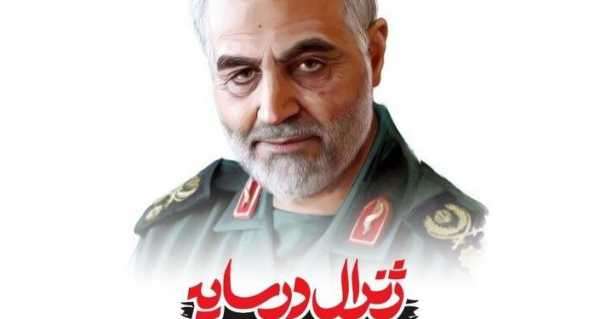
Prior to his 3 January 2020 assassination in a US drone strike, Qasem Soleimani commanded the Revolutionary Guards’ Quds Force, an elite military formation carrying out covert operations against Taliban militants in Afghanistan, Daesh (ISIS)* and al-Qaeda* terrorists in Syria and Iraq, and Israeli forces during the 2006 war in Lebanon.
A new first person shooter video game by an Iranian studio will allow players to relive the events of the 2014-2015 Siege of Amirli by Daesh militants during the War in Iraq, and will feature an appearance by slain Quds Force Commander Qasem Soleimani.
The game, produced by the Islamic Revolution Centre for Digital Products and Publications, is entitled ‘General in the Shadows’, and is expected to be formally unveiled on the anniversary of Soleimani’s assassination.
No further information about the game was provided. However, earlier this month, the game studio unveiled ‘Ambassador of Love’, a third-person action-adventure title described as the largest-ever Iranian computer game project. That game is set in the late 7th century, and depicts the journey of Muslim ibn Aqil al-Hashimi, a messenger of Imam Hussein, a key figure in Shia Islam, to the city of Kufa ahead of the uprising which led to the Imam’s death in 680. That game was said to have been created using the Unreal 4 Engine, with two years spent developing the story, which was approved by scholars of Islam.
‘General in the Shadows’ won’t be the first game of its kind. Earlier this year, Center Games, a small Iranian mobile games maker, released ‘Severe Revenge’, a “brain teaser” allowing players to “take revenge against terrorist America” “while relaxing and having fun” by sinking US carrier strike groups in the Persian Gulf.
Before his 3 January killing, Soleimani commanded the Revolutionary Guard’s Quds Force, an elite formation tasked with carrying out operations and providing allies with support in fighting outside Iran proper. Through the roughly two decades that he commanded the unit, Soleimani’s forces engaged Taliban militants in Afghanistan, al-Qaeda and other jihadist militants in Syria, as well as Daesh in Iraq.
Due to the secretive nature of Quds’ operations, many of Soleimani’s exploits remain unknown. However, his contribution in the operation to prevent the Iraqi city of Amirli from falling to Daesh have become widely publicised, with the commander said to have played a key role in seeing Iraqi Kurdish and Shia forces joining forces to beat back the terrorists. Soleimani personally travelled to Amirli in 2014 to stop the Daesh assault, with the operation becoming the first of its kind where Iraqi forces stopped the jihadists in their tracks. During the battle, Soleimani and his Quds units were said to have provided key support to Iraqi forces, including intelligence, arms, equipment and training.
Soleimani’s killing sent already-poor Iranian-US relations spiralling to a new low, with Iran retaliating to the murder by lobbing over a dozen ballistic missiles at a pair of US military bases in Iraq, leaving over 100 US troops with traumatic brain injuries. Iranian officials have repeatedly threatened further attacks. Last month, an advisor to Supreme Leader Ayatollah Ali Khamenei called the missile attack only the “initial slap” of revenge.
Pentagon officials have expressed fears that further Iranian attacks may be incoming on the one year anniversary of the Quds commander’s death.
Sourse: sputniknews.com






